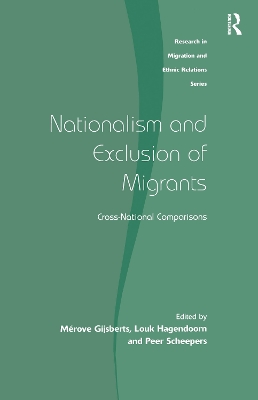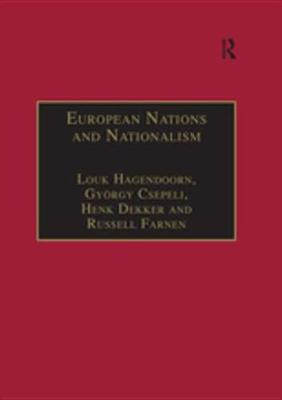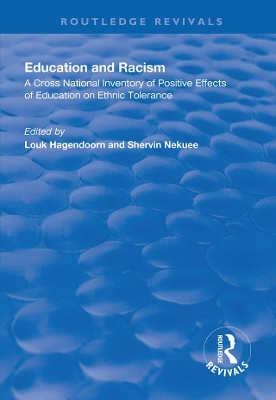Research in Migration and Ethnic Relations
3 total works
Nationalism and Exclusion of Migrants
by Merove Gijsberts and Louk Hagendoorn
Published 28 July 2004
The association of exclusionist and nationalist relations, termed ethnocentrism, has been previously explored within single-country contexts. Studies have shown that dispositional factors, such as social identity and personality traits, affect ethnocentric reactions and that attitudes differ between social categories. However, broader national and international explanations have been neglected in the literature. This book fills this major gap by providing a unique account of the relationship between nationalist attitudes and the exclusion of migrants across a range of European countries, the US, Canada and Australia. Drawing on a variety of comparative surveys, the authors assess whether ethnic exclusionist reactions and nationalist attitudes are indeed systematically related across countries, and whether variations in such attitudes reflect country-level as well as individual-level differences. The authors consider the multidimensionality of the concepts of nationalism and exclusionism as well as the empirical associations, and analyze the attitudes of both majority and minority groups within the countries studied.
European Nations and Nationalism
by Louk Hagendoorn, Gyoergy Csepeli, and Russell Farnen
Published 28 February 2000
This rich source book informs its reader in a comparative perspective about the political and social-economic past and present of fifteen Western, Central and Eastern European countries. This includes the economic and social aspects of the development of the nation state, descriptions of the current political structures and institutions, an account of the types of ethnic composition of the populations, definitions of citizenship and a background to the existing political parties and preferences. The countries involved are: the Russian Federation, Ukraine, Romania, Hungary, Slovakia, the Czech Republic, Poland, Germany, Sweden, The Netherlands, Belgium, Britain, France, Spain and Italy. The authors are scholars in the fields of nationalism and ethnic conflict and they were invited to write their country chapters along the lines of a common format, paying special attention to the notion of state and nation building processes, citizenship definitions and minority issues. This book is a comprehensive reference guide for students and scholars in the fields of social sciences, European studies, history and other related disciplines and generally to those who are interested in the past and present of any one of the large number of countries described.
First published in 1999, this book gives an inventory of factors contributing to ethnic prejudice in seven countries and the role of formal education among them on the basis of national surveys. It appears that education is crucial in all the countries surveyed and contributes to more tolerant views of ethnic and national minorities in Western European countries, Poland and the United States. The positive effects of education, however, do not always counter the negative effects of personality characteristics and conservative values on ethnic prejudice. Moreover, the negative effects of less formal education may be reinforced by perceived economical competition of ethnic minorities and thereby further bolster prejudiced views of the less educated. This indicates that formal education alone is not sufficient to change prejudiced views. Other forms of socialization transmitting values leading to open-mindedness and the ability to secure one's economic position have to support the positive effects of formal education as well.


